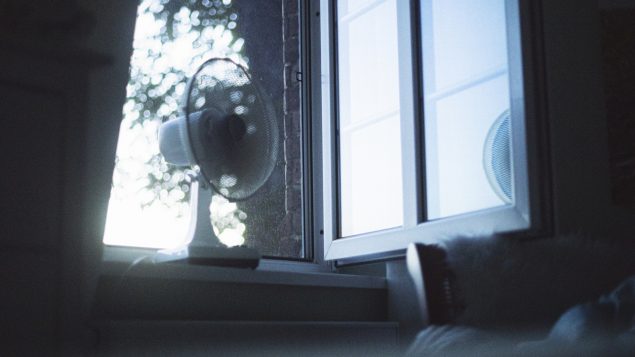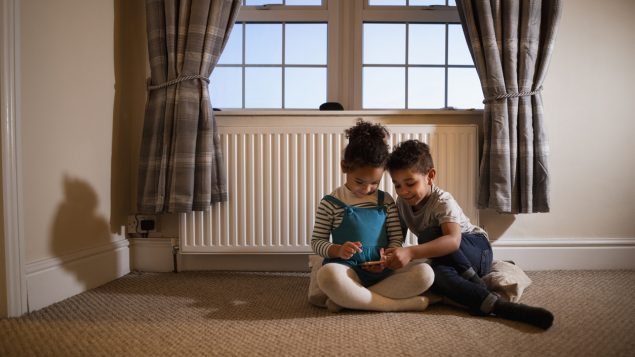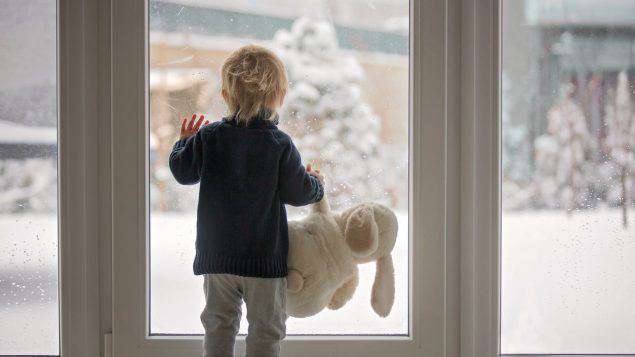Winter is coming to Canada and that means Canadians will spend more time inside their heated homes and buildings and less time outside. Public health officials acknowledge that meeting people outdoors is safer because droplets containing the COVID-19 virus disperse more easily in the fresh air and they are degraded by the sun’s rays.
‘The air we’re breathing isn’t as fresh’
“As it gets colder we tend to hunker down into our homes…So, one of the challenges with COVID-19 is that, as we spend more time indoors, the air that we’re breathing isn’t as fresh as when we’re outside,” says Marina Freire-Gormaly, an assistant professor in Mechanical Engineering at York University in Ontario. “And some of the most recent research is showing that COVID-19 can, in fact, be spread by aerosols. Aerosols are the tiny droplets that when we speak, when we cough the air has these embedded tiny particles of water and those droplets can contain the coronavirus if you’re infected. And this is another route of transmission.So, the World Health Organization has recently pointed out that perhaps this really is an area that needs more consideration.”

A fan in the window can bring in fresh air, but this will be a less interesting option in winter.
(iStock)
How to limit the risk
Many Canadian homes and buildings are equipped with heating and ventilation systems (HVAC) which exchange the air helping to dilute any virus. These systems are helpful as long as the vents are not blocked. Filters in hospitals are fine enough to screen out particles as small as viruses, but those in most buildings are not. It would be expensive to upgrade them in order to screen out COVID-19 particles. But there are other ways to reduce the risk of indoor spread of the virus, says Freire-Gormaly. She and colleagues, have been studying aerosol transmission of COVID-19 in various indoor spaces.
She quotes the adage: “The solution to pollution is dilution” and recommends that people open their windows regularly to enable air exchange in a room and to dilute any contaminated air. She harkens back to days of the 1918 flu pandemic in Canada when some public schools held classes outdoors or on the roofs of schools to take advantage of the fresh air and sunshine. Temperatures in Canada in winter can go well below zero for extended lengths of time so opening windows and allowing in the cold can be daunting. It can also drive up the energy costs of heating a home. Still, Friere-Gormaly says that will reduce the risk of circulating viruses and people can even put fans in their windows to bring in fresh air and expel air from the indoors.

Heating systems which use radiators do not move air and virus as much as HVAC system might. (iStock)
Different heating systems, different risks
Not all homes have HVAC systems. Some are heated by hot water pumped from boilers into radiators. Friere-Gormaly says there is less risk of the virus circulating in homes with these systems because there is no forced air circulating. The same is true of homes with electrical baseboard heating.
There has been word that flushing a toilet can cause the COVID-19 virus to be aerosolized. She suggests closing the seat cover before flushing. In addition, there is a recommendation to keep the washroom door closed from the American Society of Heating, Refrigerating and Air-Conditioning Engineers (ASHRAE),a global society advancing sustainable technology for buildings. Many newer buildings have fans in the bathroom to expel air to the outside. ASHRAE recommends keeping the fans running to vent any air contaminated with the virus.

Closing the lid of a toilet before flushing can reduce the chance of virus particles being aerosolized. (iStock)
Get outdoors, recommend health authorities
Beyond this public health authorities across Canada have the usual recommendations for reducing exposure to COVID-19. They include isolating in one room any member of the household who has caught the disease, limiting social contact, maintaining a distance from others of two meters, wearing a facemask and washing hands frequently. It remains to be seen whether authorities recommend measures to limit the spread of viruses indoors. In the meantime and as we prepare for a long, cold winter, people are encouraged to bundle up and get outdoors as much as they can.







For reasons beyond our control, and for an undetermined period of time, our comment section is now closed. However, our social networks remain open to your contributions.